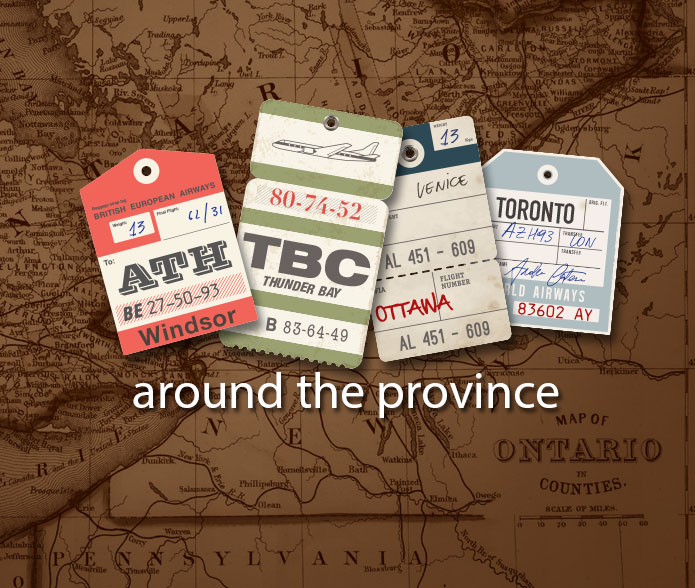Can mentorship help you in a career transition? Toby explores this as he recounts his decision to walk away from a tenure-track faculty position to become a librarian. Through OLA MentorMatch, he met with Jennifer Peters who helped him find where to focus on his job search.
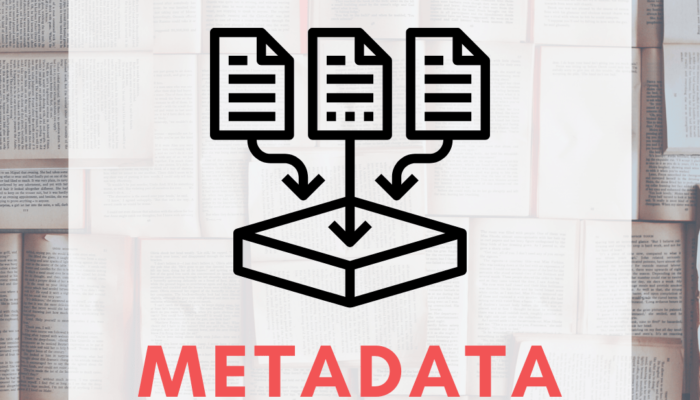
Access points: 4 Steps to gain metadata experience in academic libraries
Metadata helps us organize our collections and empowers users to find information—but how do new library and information science professionals access these skills for themselves?
Join Christine Moffatt, Madelaina DePace, and Tiffany Riberio in this three-part series that explores the early-career experiences of metadata experts working in academic, school, and government libraries (and a few unexpected spots in between!)
In June 2020, Madelaina, Tiffany and I responded to an open call for volunteers to help with a metadata project for the Open Shelf team. After six years of publishing feature articles, editorials and podcasts online for the Ontario Library Association, the team had generated an index of 760 tags with almost 500 “unique tags” (or tags that were only used to describe content in one article).
In six months, we debated, edited and introduced a controlled vocabulary of just over 200 tags to improve content discoverability on the Open Shelf website. Our tags were also used in an online marketing campaign on the Open Shelf Twitter account to help readers rediscover content around key topics and themes.
Throughout our discussions, one thing became clear—the three of us all had wildly different experiences gaining our knowledge of metadata in libraries and other industries.
While technician and librarian programs introduced the basics of metadata, it was our hands-on experiences that gave us the skills we needed to land our first professional roles.
In this article, I’ll highlight the four steps I took to develop my metadata skills as a student and recent graduate. Then, I’ll explain how I leveraged that knowledge into a new career path.
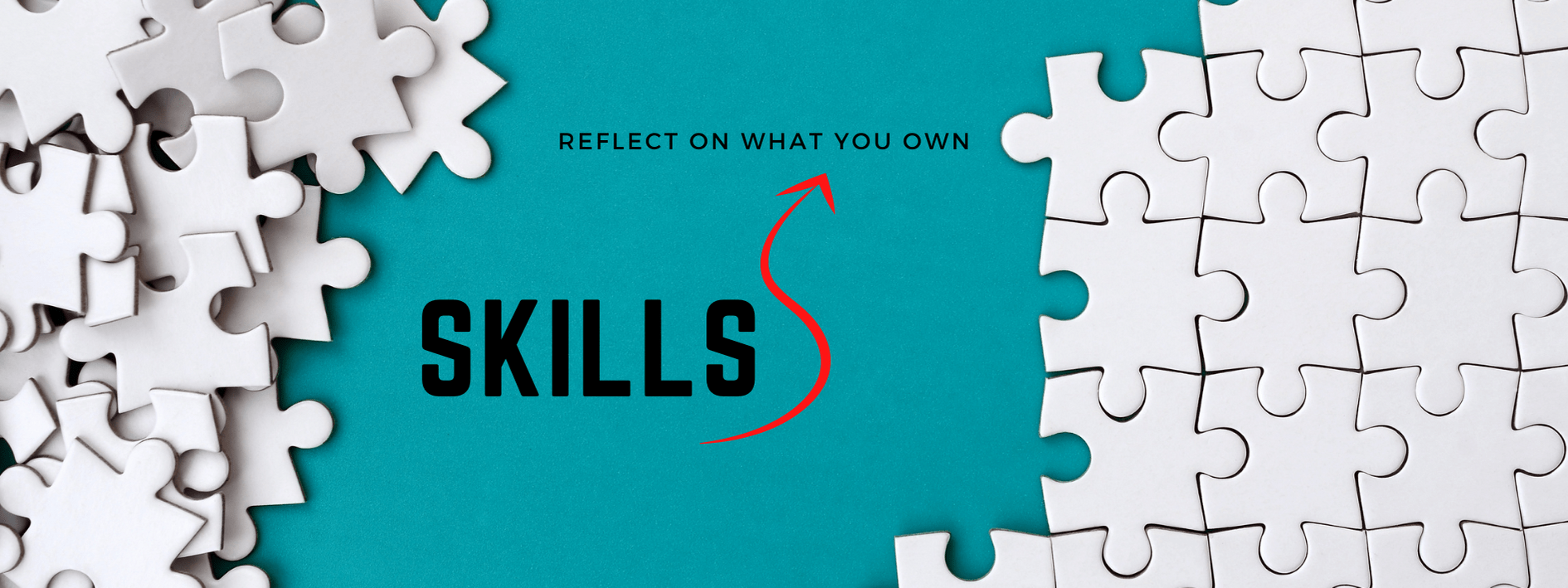
1. Reflect on your current skills and previous experience
Do you gravitate toward personal or work projects where you get to categorize things? Would people at work describe you as “detail oriented” and “highly organized”? Chances are you have a predisposition for metadata work!
In my first career, I was a Category Manager for Conspiracy Comics, an independent chain of comics, anime and gaming stores in the Greater Toronto and Hamilton Area. In my role, I was responsible for ordering anime, manga and related merchandise for four retail locations and over 20 annual comic and anime conventions in Canada.
Translation: I spent a lot of time scrolling through order spreadsheets.
One recurring challenge I faced while in this role was inconsistent title naming conventions for ongoing book series from certain publishers. For example, a manga series with a long title like No Matter How I Look at It, It’s You Guys’ Fault I’m Not Popular would get shortened to I’m Not Popular on order sheets, which would then be uploaded into our system.
I spent time each week correcting titles in our system, or adding information to give staff more context about how to organize the books on the shelf. Our decisions in the back-end of our system directly affected how customers found items in our stores.
Though our bibliographic information was tailored to our stores’ specific needs, I was already starting to understand the importance of a standardized method for organizing records in a system. I negotiated these decisions with the owner of the store and other category managers to make sure our naming conventions and guidelines were consistent across categories.
While I wished that our order sheets were a little less disordered, I enjoyed the process of creating a system to organize information. And that’s what started me down a path toward more metadata experience.
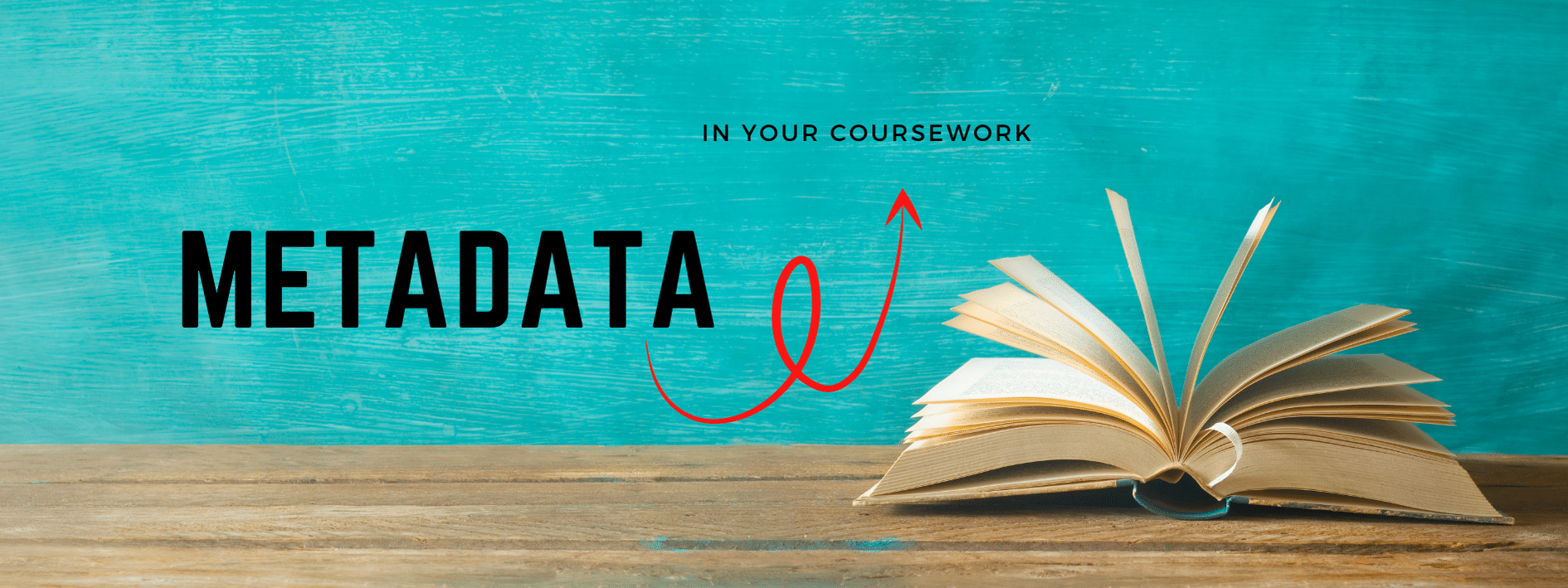
2. Explore metadata topics in your coursework
Does your library and information science program have a cataloguing course or two? Are you curious about how metadata decisions can affect other areas of librarianship? Explore those connections in your coursework!
In 2018, I started as a Master of Library and Information Science (MLIS) student at Western University and officially launched a new path into a second career. I aimed to learn broadly about librarianship and I wanted to gain varied experiences as a student before re-entering the job market.
At Western, MLIS students are required to take five core courses before branching out into more specialized electives. One of those required courses was Information Organization, Curation, and Access—otherwise known as “the cataloguing course”. In one term, I got a crash course on bibliographic control and surrogates, call numbers and cutter numbers, the records life cycle, crosswalks and standards ranging from MARC to RDA—I even learned about the infamous Apple Cake recipe.
Despite my initial excitement for the course, I struggled to write a perfect MARC record and I faltered in my analysis of Library of Congress Subject Headings. I realized that, even though I had co-created a metadata standard in my first career, I still had a lot to learn about the complexity of standardized metadata used across institutions.
I was discouraged to try another cataloguing or indexing course at the time, but I kept coming back to metadata-adjacent themes in other courses. I arranged archival materials and evaluated access points in digital archives; I explored controlled vocabularies in academic databases; I analyzed how different professions approach their records management.
Over time, I gained a more nuanced view of the underlying structures of different metadata standards, which finally codified that knowledge in my own mind
Even though I had a conflicted first experience with library-level metadata, I found new ways to engage with those themes and ended up forming a solid foundation I could use to build more experience. From there, I was eager to find new opportunities to put my education into practice and set my sights on co-op placements.

3. Get hands-on experience in a co-op placement
Does your technician or librarian program have a co-op program? Are you looking for ways to build on your in-class knowledge with practical metadata experience? Explore your options in a co-op placement!
Co-op placements are an excellent way to not only gain experience in libraries, but also to test out different roles and responsibilities—or even the work environment—before committing to them in your career.
In my case, I was fortunate to earn an eight-month placement at the University of Guelph’s McLaughlin Library as a Collections and Content Co-op Student. There, I spent a large percentage of my time learning from the best and brightest in the Electronic Resources Management (ERM) team. I also benefited from joining the team during the late stages of their first major records clean-up project, which meant that I got to put my new metadata skills to the test.
When I started in this role in Spring 2019, 16 member libraries in the Ontario Council of University Libraries (OCUL) were close to completing their Collaborative Futures project, a shared development of a new academic search tool called Omni. Omni would allow these 16 libraries to share their collections and services with one another while still maintaining local autonomy over special collections and archives. In my own work, I oversaw the final stages of a records clean-up project in the library’s previous system. In doing so, I resolved over 2,200 e-journal access issues that were affecting front-end users.
I became well-versed in correcting holding statements, updating URL links, correcting parse params, activating and deactivating targets in SFX Link Resolver and I had the chance to edit and upload MARC records into the system. Did I ever imagine I would know what any of those terms mean? No. Did I love the experience? Absolutely
One thing I learned early on was how much ERM work is rooted in noticing patterns—experts need to see where URLs break and know how to fix them, which content fields are incomplete and where users might need help finding the right access point to discover new content.
As I spent more time cleaning up the back-end of the system, I realized that my research desk interactions were getting much stronger too. I understood how a student’s searches were breaking and I knew how to troubleshoot article access issues on the spot. I could see where students were having trouble capturing the right keyword in their searches and knew how to lead them out of that tunnel.
If a co-op placement has room for you to learn more about bibliographic data and metadata, make sure to ask—learning the underlying structures of your library’s system can refine your skills in other unanticipated ways too. And, if you don’t have the option to gain first-hand metadata experience in a co-op role, chances are metadata projects exist on a volunteer basis as well!
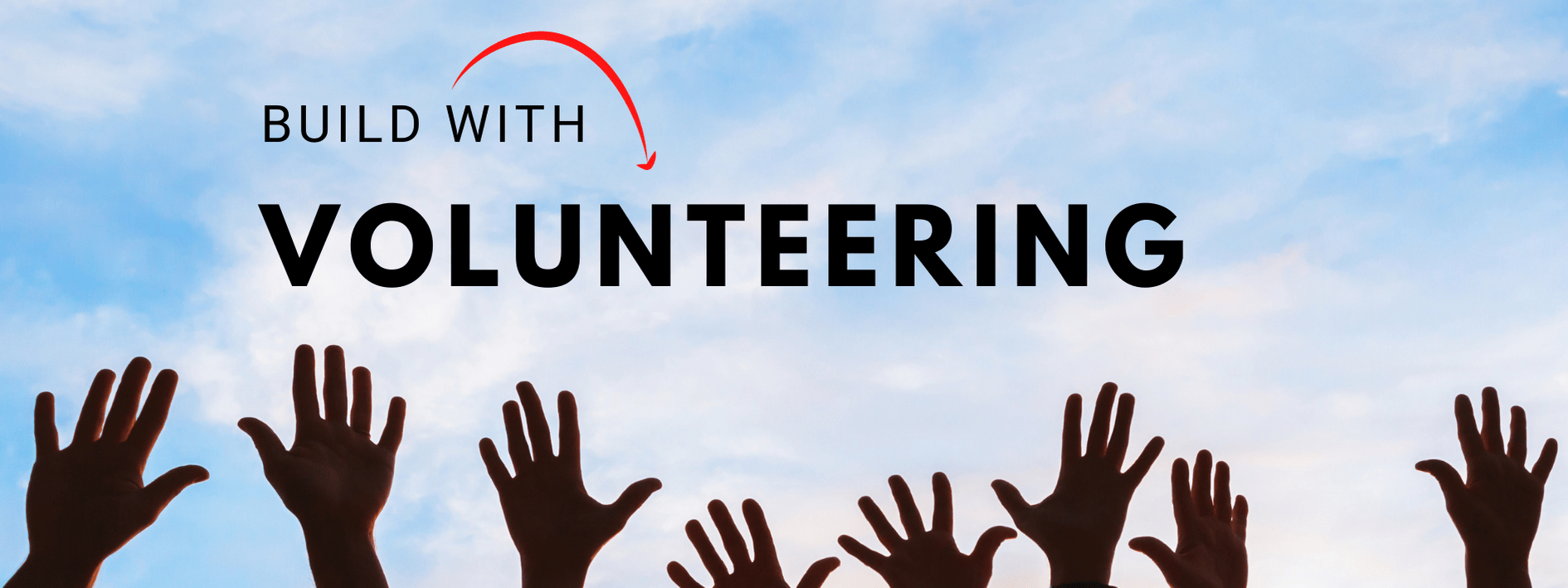
4. Volunteer for projects that build on your experiences
Are you a recent graduate and still trying to build your professional CV? Did you take a temporary job outside of libraries but want to move back into the field? Consider signing up for a volunteer project to keep your skills sharp!
In April 2020, I graduated with my MLIS and entered a barren job market. In the two months leading up to the last day of classes, I received a flood of e-mails about cancelled job competitions and delayed conferences. I was worried about my prospects of finding library work as a recent graduate, even though I had transferable skills from my first career and had gained 1.5 years’ worth of library-specific experience as a student.
I wanted to keep building my professional CV, and I knew I wanted to work in libraries, so I started looking for volunteer projects to keep my skills sharp and help me to build a professional network.
My first opportunity was the DIY History project at the University of Iowa, a crowdsourced volunteer project to transcribe and tag key collections in the library’s archives. When archival papers are scanned into a computer, databases and search engines can’t search the text itself—the content exists only as an image file. To make mass quantities of digitized artifacts searchable for researchers and general users, human transcribers need to type out the text and apply specialized tags to improve access and discoverability. In the early days of the COVID-19 pandemic, I was transcribing student newspapers and personal journals published in 1919 that discussed how people were navigating the flu pandemic (the parallels were fascinating).
My second opportunity arrived mere months later when an open call for volunteers was posted on the Open Shelf website
In that moment, I came full-circle in my metadata journey—I started off creating guidelines and standards in a niche and highly subjective information system, and I arrived at a point where I needed to draw on my expertise with metadata to create guidelines and standards to tag content in a professional space online. From that project, I stayed on and became the first Metadata Editor at Open Shelf where I oversee the continued maintenance of our posts’ tags and categories. In addition, I got to make connections with librarians working in many different library spaces who were willing to offer advice to me as I continued my job search.
After following these four steps to identify and develop my metadata skills and pursue new opportunities, I leveraged that knowledge into my first full-time library role.

BONUS: Leverage your metadata knowledge in new (and unexpected!) ways
Have you dedicated years to developing your metadata skills, but aren’t finding any metadata-related library jobs? Look for the advantages in your specialized knowledge and leverage them in new and unexpected ways!
In the interview for my first full-time library contract, my (soon-to-be) supervisor was impressed with my role in the Open Shelf metadata project and our groups’ analysis of the underlying organization of the website
After I was hired, I learned that my supervisor had plans for a data analysis project that would look at her team’s consultation and instruction usage data. She needed someone who could analyze the language used to track librarian-student interactions, point out inconsistencies in how data was recorded and offer recommendations on updates to the terminology. I was a great candidate to take on that role thanks to my metadata experience, and I had an amazing time analyzing those datasets.
Since that first contract, I’ve worked in a limited-term contract as an Engineering & Entrepreneurship Librarian and now as a Researcher at the Problem Lab, both at the University of Waterloo. I’m still using the foundations of my metadata knowledge to inform my work. In both roles, I coach students on the importance of file naming conventions and README files in organizing their research, I guide business researchers through taxonomies like the North American Industry Classification System (NAICS) codes, and I create standardized categories and tags for multiple teams to use to track their instruction statistics.
Without my metadata skills, I might still be able to do the same tasks—but with them, I have a better understanding of why these structures work and how students, faculty and colleagues can use them to their advantage.
While metadata might be standardized in libraries, the path to access those skills is not. Up next, we’ll explore Madelaina DePace’s early-career experiences with metadata in school libraries and more!
Christine Moffatt (she/her) is a Researcher at the Problem Lab at the University of Waterloo, Canada’s first lab dedicated to problem analysis. She supports the Problem Lab by designing and developing new programs and hands-on workshops, coaching student innovators through the Quantum Valley Investments® Problem Pitch, and researching new areas of interest for internal and external partners.
